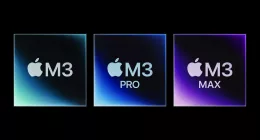HTC is still limping along. The Taiwanese smartphone maker has announced a significant NT$8 billion loss for the second quarter of 2015, having released it’s quarterly earnings report yesterday. However, the news doesn’t come as a surprise since the unaudited results in the first week of July too had presented losses and now the official figures have confirmed it’s worst fears.
The beleaguered smartphone maker had recorded an operating loss of NT$5.1 billion ($161 million) and NT$8 billion ($253 million) in net loss before tax, while revenue dropped to NT$33 billion, down 49.3 percent from last year.
The second quarter is usually encouraging for the company, since it follows the launch of flagship smartphone(this year, it’s the M9). However, that hasn’t helped turn things around for the company. HTC reported revenue of $1.04 billion in the quarter, around half of the $2.05 billion in the second quarter of 2014. They have warned of a loss in the third quarter itself, whereas financial analysts aren’t going easy-they claim investors should expect at least four quarters of red in the books from HTC.
HTC said in a statement that it “has begun to implement company-wide efficiency measures to reduce operating costs across the organization and ensure resources are appropriately allocated to future growth.”
In a conference call with reporters, HTC CFO Chialin Chang said “the cuts will be across the board,” and that “they will be significant.”. Chang said the cost cuts would extend to the first quarter of 2016 but declined to give further details. HTC is planning to overhaul its product strategy by focusing on fewer models spaced out reasonably instead of going after shipment numbers.
You’re thinking, isn’t there any good news? Well, HTC has recorded a year-on-year growth in key emerging markets like India where it has an approx. 20% market share.
Last year, HTC managed to return to minor profit after a number of quarterly losses and had been hoping to continue its recovery throughout 2015.
HTC seems to have been caught off guard by both high-end and mid-range competitors like Samsung, Apple and Xiaomi. Hopefully, the company could gain traction from investing in promising technologies like virtual reality via the hugely anticipated HTC Vive.
HTC is also developing new connected devices, including a fitness band through a partnership with sports apparel maker Under Armour. Again, Chang didn not divulge as to when these projects will lead to cash inflows.





